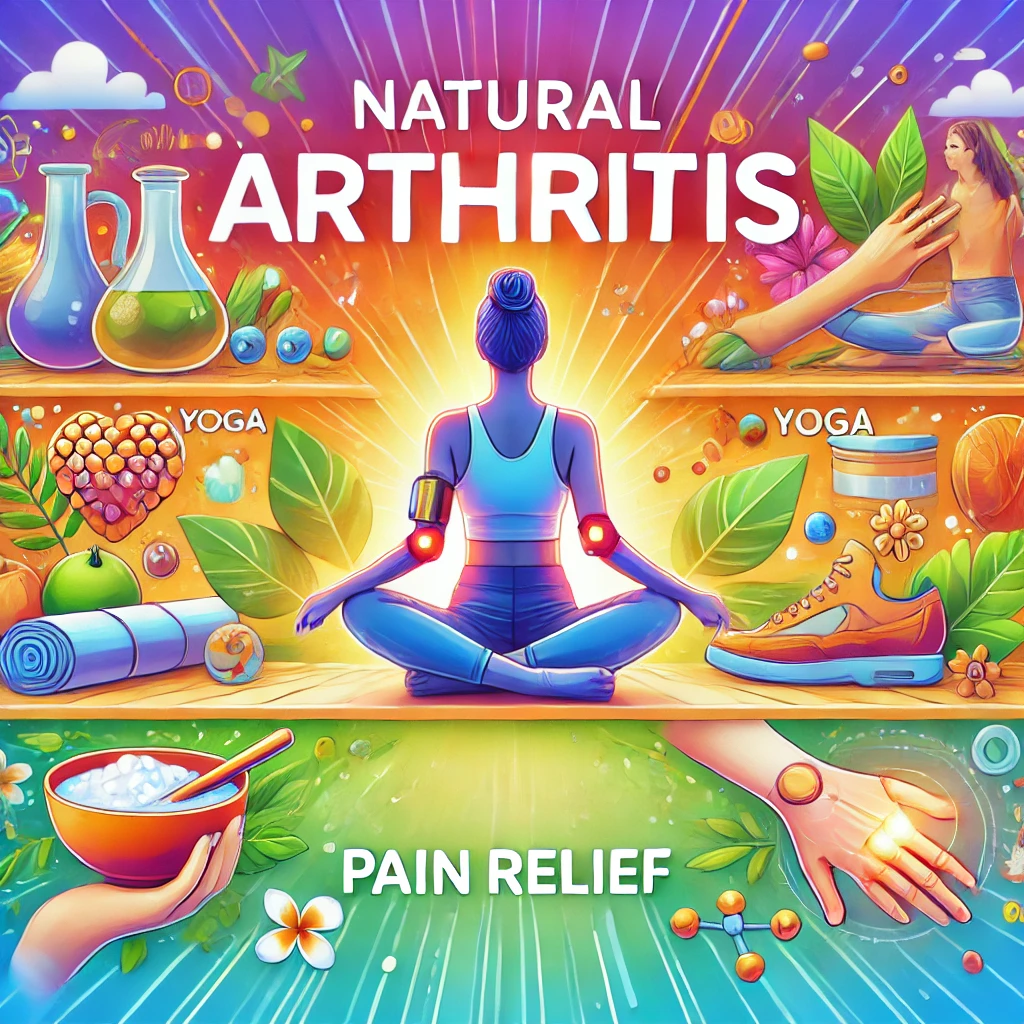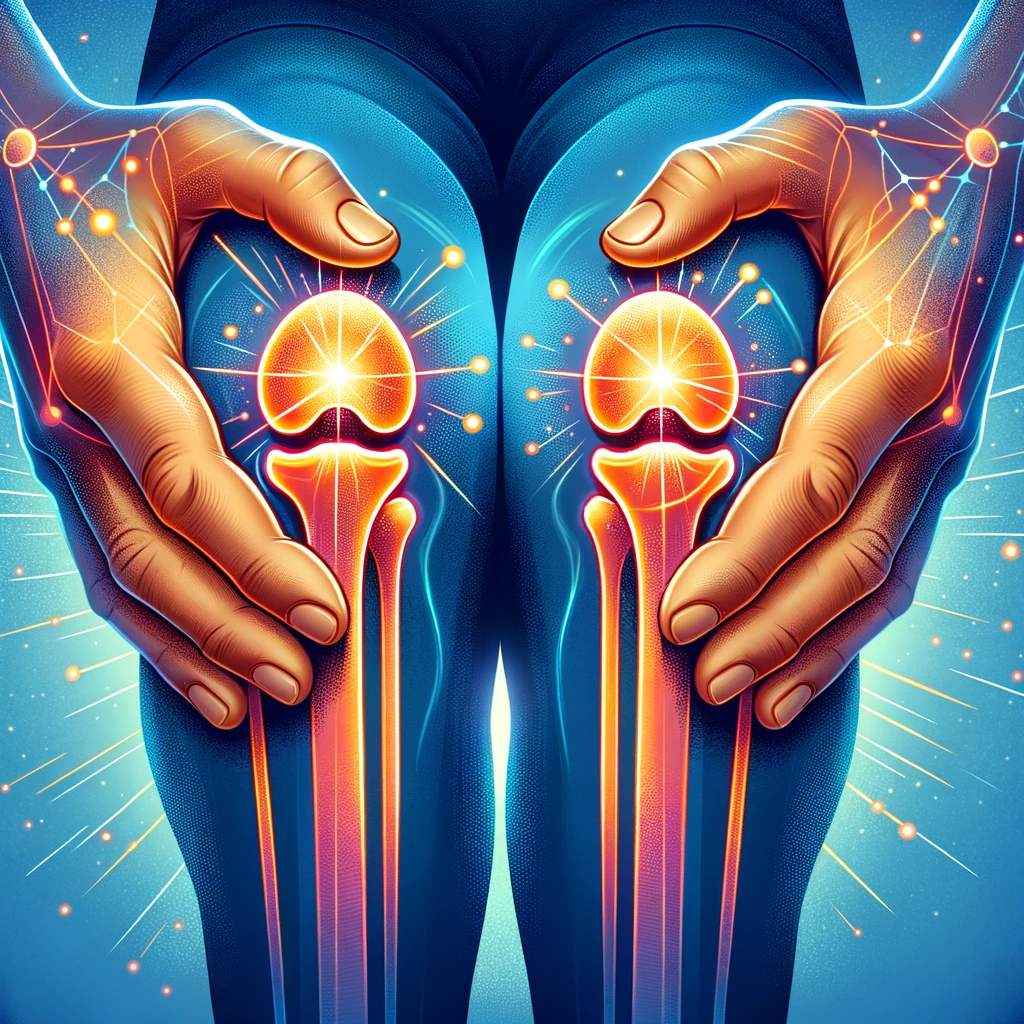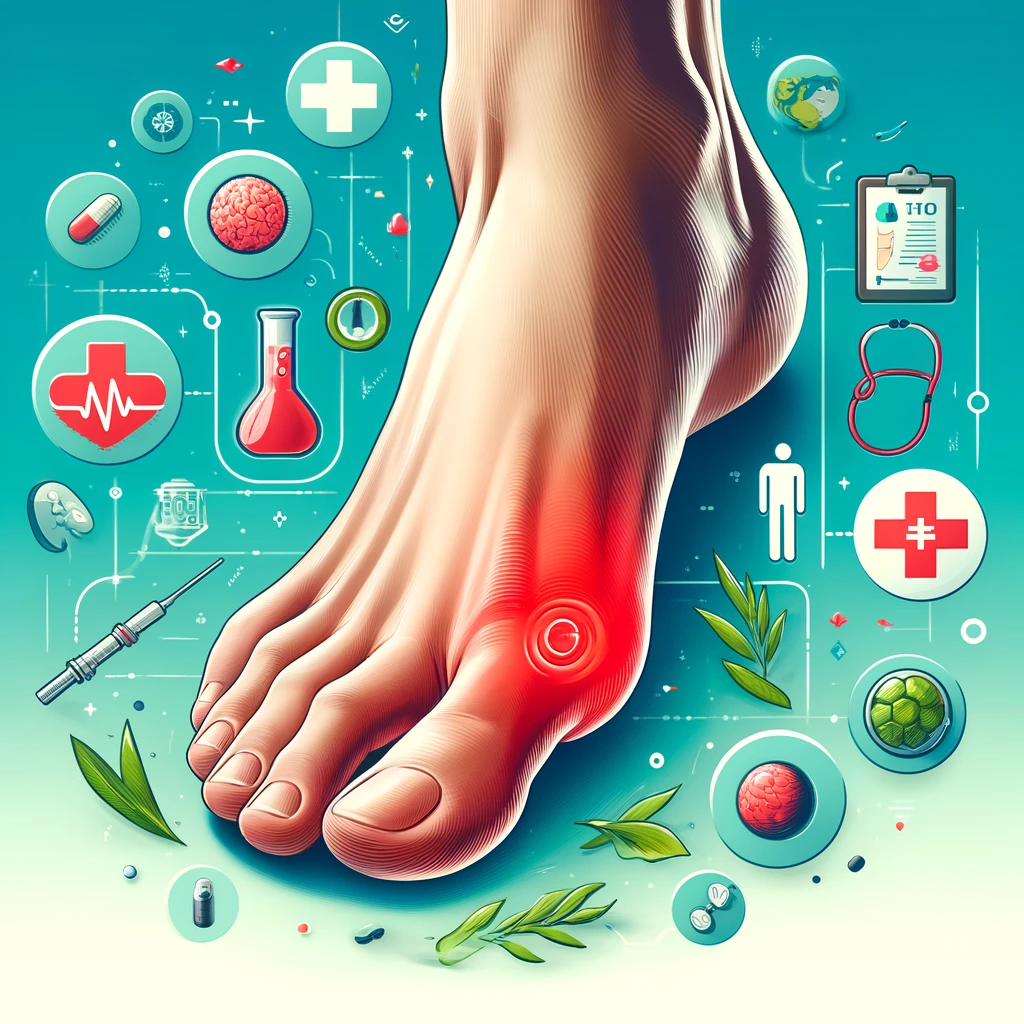Table of Contents
Rheumatoid arthritis (RA) is a chronic inflammatory disorder that primarily affects joints, leading to pain, swelling and eventually joint damage. The inflammation caused by RA can also affect other systems in the body, such as the skin, eyes, lungs and blood vessels. Conventional treatments, including medications and physical therapy, aim to reduce inflammation and slow disease progression, but these may not always provide complete relief or be suitable for everyone.
As a result, many people are exploring natural remedies to manage their RA symptoms and improve their quality of life. Natural approaches include dietary changes, such as incorporating anti-inflammatory foods and supplements, and lifestyle modifications, like regular exercise and stress management techniques. Herbal remedies, acupuncture and physical therapies like yoga and tai chi have also shown promise in alleviating the discomfort associated with RA. This article explores various natural remedies for rheumatoid arthritis, offering insights into how these methods can complement traditional treatments and provide holistic relief.
What is Rheumatoid Arthritis?
Definition and Symptoms
Rheumatoid arthritis is an autoimmune disease where the immune system mistakenly attacks the joints, leading to inflammation. Common symptoms include joint pain, stiffness, swelling and reduced mobility.
Causes and Risk Factors
The exact cause of RA is unknown, but it is believed to involve a combination of genetic and environmental factors. Risk factors include family history, smoking, and certain infections.
Why Consider Natural Remedies?
Benefits of Natural Approaches
Natural remedies offer a holistic approach to managing rheumatoid arthritis. They can help reduce inflammation, relieve pain and improve overall well-being without the side effects often associated with conventional medications.
Potential Side Effects of Conventional Treatments
Conventional treatments, such as NSAIDs and corticosteroids, can have side effects like gastrointestinal issues, cardiovascular problems and weakened immune function. Natural remedies can be a safer alternative for long-term management.
Diet and Nutrition
Anti-inflammatory Foods
Incorporating anti-inflammatory foods into your diet can help manage RA symptoms. Foods rich in omega-3 fatty acids, like salmon and flaxseeds, as well as antioxidants found in fruits and vegetables, can reduce inflammation.
Foods to Avoid
Certain foods can exacerbate inflammation. It’s advisable to avoid processed foods, excessive sugar and red meat. Gluten and dairy products may also trigger symptoms in some individuals.
Role of Supplements
Supplements like fish oil, vitamin D, and turmeric have anti-inflammatory properties that can help manage RA. Always consult with a healthcare provider before starting any new supplements.
Herbal Remedies
Turmeric
Turmeric contains curcumin, a powerful anti-inflammatory compound. Adding turmeric to your diet or taking it as a supplement can help reduce joint inflammation.
Ginger
Ginger has natural anti-inflammatory and antioxidant properties. It can be consumed as a tea, added to meals, or taken as a supplement to help alleviate pain and inflammation.
Green Tea
Green tea is rich in polyphenols, which have anti-inflammatory effects. Drinking green tea regularly can help reduce the severity of RA symptoms.
Exercise and Physical Therapy
Low-Impact Exercises
Engaging in low-impact exercises like swimming, walking and cycling can help maintain joint flexibility and reduce pain. Exercise also helps improve overall health and mood.
Benefits of Regular Movement
Regular physical activity strengthens muscles, supports joint health and reduces fatigue. It also promotes better sleep and stress management.
Physical Therapy Techniques
Physical therapists can provide personalized exercise programs and techniques to manage RA symptoms effectively. They can teach you how to protect your joints during daily activities.
Mind-Body Practices
Yoga
Yoga combines physical postures, breathing exercises and meditation. It helps improve flexibility, reduce pain and enhance mental well-being.
Meditation
Meditation can help manage stress, which is a common trigger for RA flare-ups. Mindfulness meditation, in particular, can improve pain tolerance and emotional health.
Tai Chi
Tai Chi is a gentle form of martial arts that improves balance, flexibility and strength. It has been shown to reduce pain and improve quality of life for individuals with RA.
Hydrotherapy
Benefits of Water Exercises
Exercising in water reduces the strain on joints while providing resistance for muscle strengthening. Water aerobics and swimming are excellent options for people with RA.
Hot and Cold Treatments
Alternating between hot and cold treatments can help manage pain and inflammation. Hot packs or warm baths can relax muscles, while cold packs can reduce swelling.
Acupuncture and Acupressure
How Acupuncture Works
Acupuncture involves inserting thin needles into specific points on the body to stimulate healing. It can help reduce pain and improve joint function in people with RA.
Benefits of Acupressure
Acupressure applies pressure to specific points on the body to relieve pain and tension. It’s a non-invasive technique that can complement other RA treatments.
Essential Oils
Popular Essential Oils for Arthritis
Essential oils like lavender, eucalyptus, and peppermint have anti-inflammatory and pain-relieving properties. They can be used in aromatherapy or applied topically.
Methods of Application
Essential oils can be added to a diffuser, mixed with carrier oils for massage or used in warm baths to help alleviate RA symptoms.
Lifestyle Changes
Stress Management
Managing stress is crucial for controlling RA symptoms. Techniques like deep breathing, meditation and hobbies can help reduce stress levels.
Importance of Sleep
Quality sleep is essential for overall health and can help manage RA symptoms. Establishing a regular sleep routine and creating a comfortable sleep environment are important.
Weight Management
Maintaining a healthy weight reduces the strain on joints and can help alleviate RA symptoms. A balanced diet and regular exercise are key components of weight management.
Success Stories
Personal Experiences
Many individuals with RA have successfully managed their symptoms through natural remedies. Sharing these stories can inspire others to explore similar approaches.
Community Support
Joining support groups or online communities can provide valuable information and emotional support for individuals with RA. Sharing experiences and tips can be empowering.
Combining Natural Remedies with Conventional Treatments
Importance of a Holistic Approach
Combining natural remedies with conventional treatments can offer a comprehensive approach to managing RA. It’s important to find a balance that works for you.
Consulting Healthcare Professionals
Always consult with healthcare professionals before making any changes to your treatment plan. They can provide guidance and ensure that your approach is safe and effective.
Precautions and Considerations
Allergies and Interactions
Some natural remedies may cause allergies or interact with medications. It’s important to be aware of these potential issues and consult with a healthcare provider.
Consulting with a Professional
Before starting any new treatment, it’s essential to consult with a healthcare professional to ensure it is appropriate for your specific condition.
Conclusion
Natural remedies can play a significant role in managing rheumatoid arthritis. From dietary changes to herbal supplements, exercise and stress management, there are numerous ways to alleviate symptoms and improve quality of life. Always remember to consult with healthcare professionals and approach treatment with a holistic mindset.
FAQs
Can natural remedies cure rheumatoid arthritis?
No, natural remedies cannot cure rheumatoid arthritis, but they can help manage symptoms and improve quality of life.
What foods should be avoided with rheumatoid arthritis?
It’s best to avoid processed foods, excessive sugar, red meat, gluten, and dairy products, as they can exacerbate inflammation.
How effective is acupuncture for rheumatoid arthritis?
Acupuncture can be effective in reducing pain and improving joint function, but its effectiveness varies from person to person.
Are there any risks associated with natural remedies?
Some natural remedies may cause allergies or interact with medications. Always consult with a healthcare provider before starting any new treatment.
How long does it take to see results from natural remedies?
The time it takes to see results can vary. Some individuals may notice improvements within a few weeks, while others may take longer. Consistency is key.



